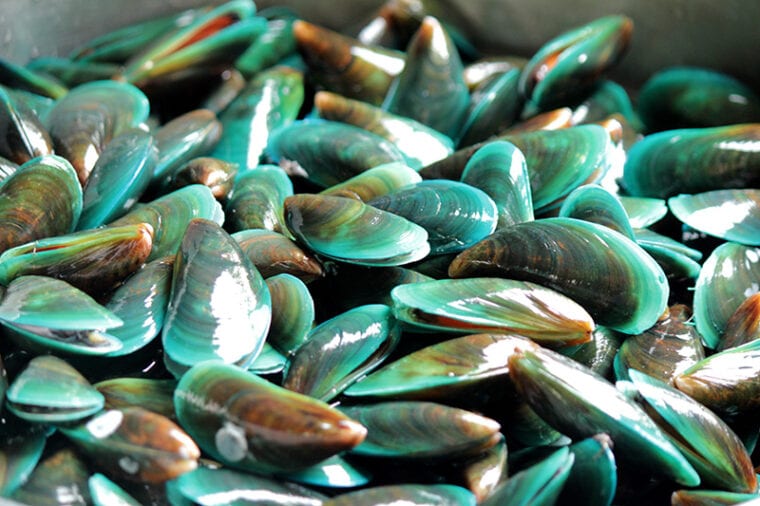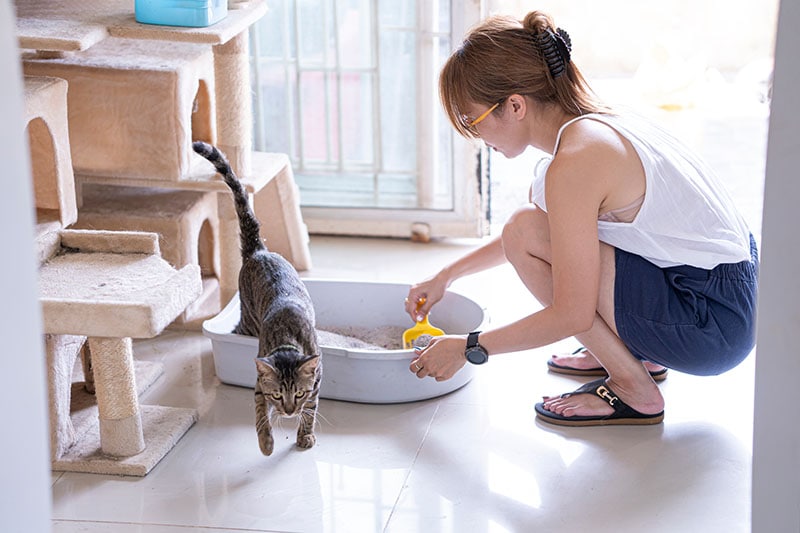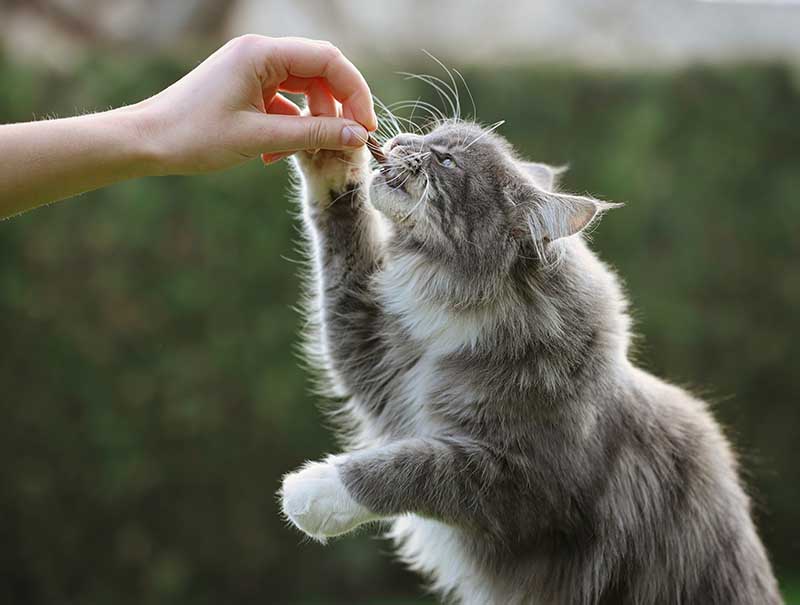
If your cat suffers from joint pain and arthritis, you may have heard that green lipped mussel can help. But what exactly is green lipped mussel? Is it a good supplement for your cat? How much should we give them?
We’ll answer all those questions for you here, but the short answer is that Yes: it’s almost always a good idea to add green lipped mussels to your cat’s diet!
What Are Green Lipped Mussels?
Green lipped mussels, also known as the New Zealand ore greenshell mussel, are a type of shellfish, but you’ll usually be giving it to your cat in the form of a supplement, not the actual shellfish. It’s common to find green lipped mussels in various joint supplements for dogs, humans, and cats. There is so much interest in the application of this unassuming mollusc, that one company, Shellfish Production and Technology New Zealand (SPATnz), has trademarked the name GreenshellTM for their breeding program.
High levels of Omega-3 Fatty Acids found in these shellfish have proven to have anti-inflammatory and analgesic effects on arthritis, most obvious when harvested and prepared correctly, and when given alongside other ingredients. Green lipped mussels alone won’t provide much relief for severe situations, but if your cat suffers from minor joint pain, green lipped mussels can provide the necessary relief, as well as improve the effects of other anti-inflammatory medications.

How Are Green Lipped Mussels Given?
While green lipped mussels are shellfish, you almost always give them to your cat in a supplement. There is a wide range of products that incorporate green lipped mussels into them. There are freeze-dried varieties, baked varieties, and so much more. Studies have shown that the timing and method of manufacturing the supplements can significantly impact their efficacy, so it is important to read up on the products you are thinking about using.
Products that use a rapid vacuum-drying process that reduces the mussels to powder within seconds protects the essential omega-3 fatty acids and other important ingredients, maximizing the effectiveness of the supplement produced.
You can even find products that mix green lipped mussels with other foods, which can be beneficial if your cat doesn’t like the taste of them. Try different products to find what your cat likes while giving them the necessary nutrients to help them with their joint pain.
Each of the supplements will come with its own dosage requirements, so always follow the directions on the packaging when feeding them to your cat.

What Happens if You Miss a Dose?
If you miss a dose of green lipped mussels, it’s not something you really need to worry about. While your cat might not get the mild relief they need that day, it’s not going to prevent them from getting future relief, and they won’t go through any severe side effects. So, don’t worry about it and just give them their regular dose the next day. The effects of green lipped mussels are cumulative rather than effective only on the day given, so missing an occasional dose should not cause much disruption.
Potential Side Effects of Green Lipped Mussels
Compared to many other medications you can give your cat, green lipped mussels have very few side effects. However, fewer side effects doesn’t mean no side effects.
Two of the most common side effects of giving your cat green lipped mussels are indigestion or flatulence. It’s not guaranteed that your cat will develop these conditions, but it’s certainly possible, and it’s not anything you need to worry about if it happens. However, in human trials, green lipped mussels had a positive overall effect on gastrointestinal function, particularly for patients experiencing side effects from taking other anti-inflammatory medications, such as Non-Steroidal Anti-Inflammatories (NSAIDs).
If your cat starts developing other more serious changes after starting a dosage, discontinue use and reach out to a vet for further advice. Shellfish allergies in cats are extremely rare, but if your cat exhibits signs such as sudden itching, facial swelling, or severe diarrhea, contact your vet immediately.

 Frequently Asked Questions (FAQs)
Frequently Asked Questions (FAQs)
Whenever you’re thinking about giving your cat a supplement, you’re bound to have a few questions. We understand, and that’s why we decided to answer some of the most frequently asked questions for you below.
Are Green Lipped Mussels Safe for Cats?
Yes! Green lipped mussels are extremely safe for cats unless your cat has a shellfish allergy (rare). But don’t overdo it, and follow the dosage instructions on the supplement package.
Can You Give Green Lipped Mussels to Kittens?
You can, it is safe. In most cases, kittens and young cats will not need joint support, but if they have had an injury involving a joint, starting early on this type of supplement can be highly beneficial.
How Much Green Lipped Mussels Should I Give My Cat?
This will very much depend on the brand, type, and formulation of the product. Always follow the directions on the specific supplement you’re using, and do not assume that if your cat was having 1 capsule of one brand, that it will be the same for another brand – always check the label.
When Should I Start Giving My Cat Green Lipped Mussel?
Supplements such as green lipped mussel are most effective when introduced before significant osteoarthritis changes have occurred. This means that starting your cat on a joint supplement around the age of 8-10 years old would be ideal.
If you have an older cat that is starting to show signs of arthritis creeping in, such as reduced activity, difficulty reaching certain spots when grooming, difficulty or hesitation when jumping up or down, or looking thin around the back legs, talk to your vet about starting them on a joint supplement.

Conclusion
If your cat suffers from joint pain, has a previous injury, or if they just need a little help supporting their joints, green lipped mussels are a great choice. There are many different options out there, and while it’s not a miracle cure-all, it can certainly help slow down the progression of arthritis, as well as reduce the pain caused by joint disease. If you’re thinking about giving your cat green lipped mussels, go ahead and give it a shot. Remember, if you’re worried that your cat has arthritis or might be in pain, it is best to check with your vet in case there is more going on than just a bit of stiffness.
Featured Image Credit: Mr.Samarn Plubkilang,Shutterstock






